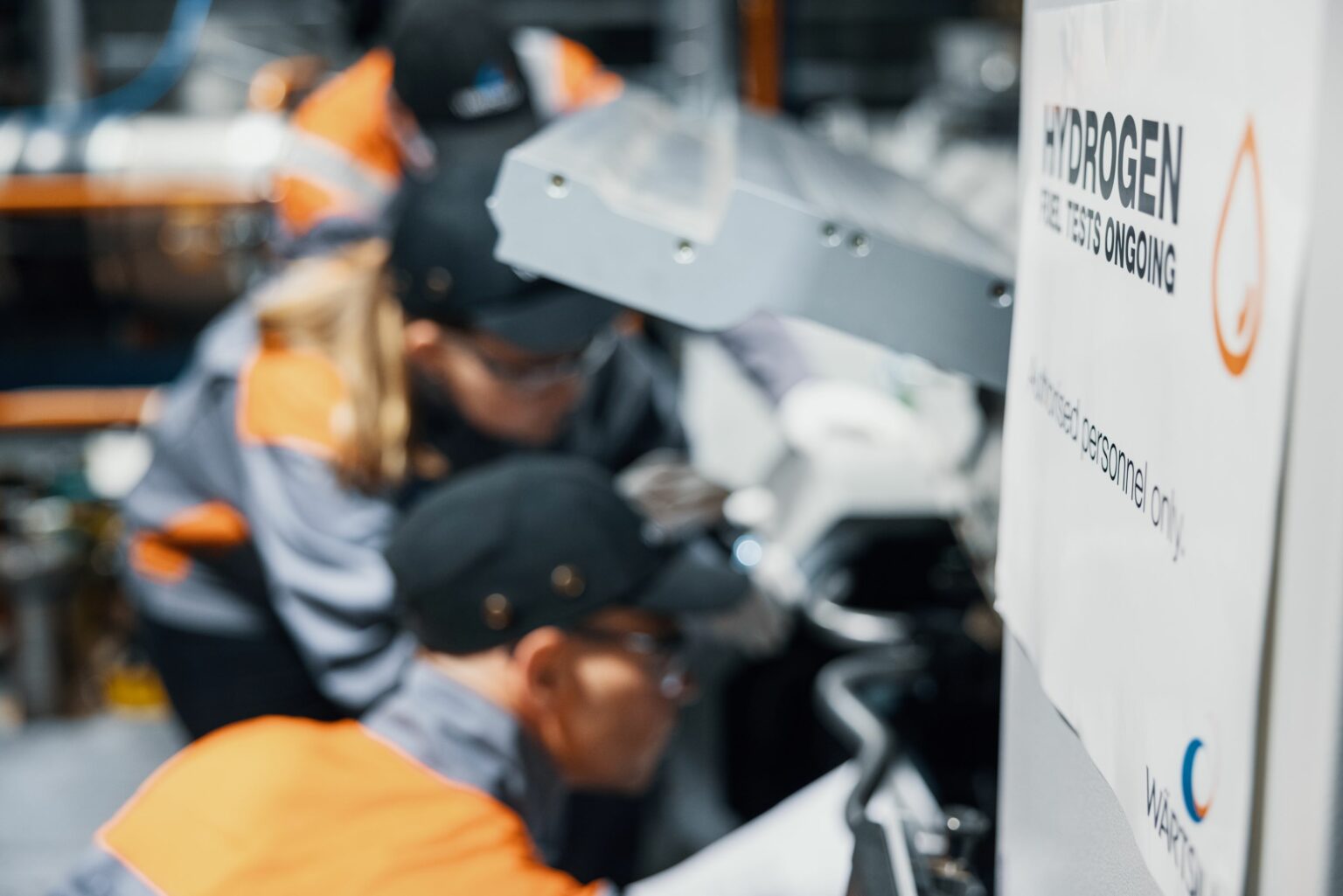Wärtsilä Corporation has joined a consortium to explore hydrogen-argon power cycles aimed at achieving net-zero power generation.
This project is spearheaded by the Integrated Hydrogen-Argon Power Cycle (iHAPC) consortium, which is led by the University of Vaasa, along with Business Finland and other partners. The primary goal is to enhance engine efficiency using an innovative closed-loop combustion cycle.
The focus of the research is on substituting air with argon and oxygen in internal combustion engines. By using argon, the engines can achieve higher thermodynamic efficiency. The input for this cycle includes hydrogen, resulting in water and inert argon as sole byproducts. Argon is recycled, creating a sustainable closed-loop system. Hydrogen and oxygen, essential components of this cycle, are produced through electrolysis, which contributes to the cycle’s overall efficiency.
Balancing engines play a crucial role in stable renewable energy systems, supporting wind and solar power by maintaining grid stability. Switching these engines from gas to hydrogen, a greener fuel, is anticipated to happen as sustainable fuel production grows. Predictions suggest considerable fuel availability by 2030, aiding the transition within the coming decade.
The three-year initiative is part of Wärtsilä’s WISE programme, backed by Business Finland. The iHAPC project collaborates with entities such as the University of Vaasa, the University of Oulu, and VTT Technical Research Centre of Finland. Professor Maciej Mikulski from the University of Vaasa sees this cycle as a potential breakthrough for the energy sector, thanks to its remarkable efficiency in utilizing green hydrogen.





